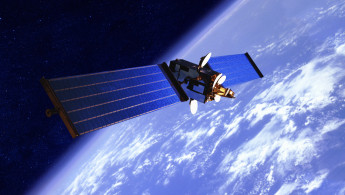Iran plans space satellite launches in coming months: minister
Iran prepares to launch "at least two satellites" into space by late March, Telecommunications Minister Issa Zarepour said Sunday, just over a month after successfully testing a launcher.
The United States has repeatedly voiced concern that such launches could boost Iran's ballistic missile technology, extending to the potential delivery of nuclear warheads.
But Iran insists it is not seeking nuclear weapons and that its satellite and rocket launches are for civil or defence purposes only.
"Nahid 1 and Nahid 2 satellites are being prepared," Zarepour was quoted as saying by official news agency IRNA.
Nahid is the name given to a series of telecommunications satellites developed by the Iranian Space Research Center.
According to Zarepour, "we will have launches by year's end," March 20 in the Persian calendar.
In early November, Iranian state television announced the "successful suborbital launch of the satellite launcher named Ghaem-100".
The Ghaem-100 rocket was manufactured by the aerospace organisation of the Islamic Revolutionary Guard Corps and it is the country's first three-stage solid-fuel satellite launcher, the channel added.
Iran successfully put its first military satellite into orbit in April 2020, drawing a sharp rebuke from Washington.
In August this year, another Iranian satellite, named Khayyam, was launched by Russia on a Soyuz-2.1b rocket from Baikonur Cosmodrome in Kazakhstan.
Iran's space agency said the device was constructed by Russia under Iran's supervision.
The US alleged at the time that the Khayyam would enable "significant spying capabilities" and that a deepening Russia-Iran alliance amounted to a "profound threat" to the world.
Iran's space agency rejected those allegations, countering that the purpose of Khayyam was to "monitor the country's borders", and help with the management of natural resources and agriculture.





 Follow the Middle East's top stories in English at The New Arab on Google News
Follow the Middle East's top stories in English at The New Arab on Google News


